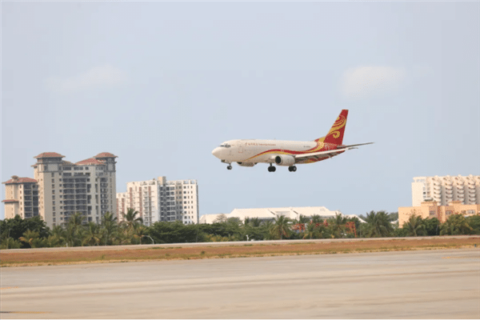Etihad Cargo has entered into a Proof-of-Concept agreement with logistics technology solutions provider SPEEDCARGO to utilise the latter’s Artificial Intelligence (AI) products to boost cargo capacity on flights.
The landmark agreement makes Etihad Cargo only the second aviation company worldwide to leverage the Cargo Eye dimensioning system, and among only a few global carriers to trial the Singapore-based provider’s AI-powered Cargo Mind software solution, which delivers optimal cargo space planning and utilisation in seconds in full adherence to regulations and business constraints.
“Etihad Cargo’s goal is to assess whether implementing Cargo Eye and Cargo Mind could ensure a complete end-to-end process which totally transforms airfreight operations,” explained Martin Drew, SVP Sales and Cargo at Etihad Aviation Group.
“The Proof-of-Concept will confirm whether these advanced SPEEDCARGO products can boost efficiency, productivity and revenue return through digital technology solutions, with the plan to integrate them into our operations in 2022.”
Cargo Eye, developed with Microsoft’s cutting-edge Time-of-Flight sensing technology, captures imagery of incoming cargo and calculates accurate dimensions based on cargo type, size and packaging in real-time, while seamlessly integrating the data into existing warehouse management systems. The solution also feeds data into Cargo Mind to accurately build load plans, monitor and promote data compliance, and identify damaged cargo to reduce potential claims.
“Etihad Cargo is the first airline to propose using SPEEDCARGO’s new Cargo Mind-Airline Product for early-stage flight planning and creation of final booking lists and first-level load plan within the airline ecosystem,” Dr Suraj Nair, Founder and Chief Technology Officer, SPEEDCARGO.
“Thereafter, working with their GHA’s where SPEEDCARGO’s GHA solutions are deployed Etihad Cargo will further maximise cargo capacity on each flight by using Cargo Eye to automate dimensioning of cargo and Cargo Mind – GHA product to create load plans that maximise cargo capacity.”
“By maximising cargo across flights and ULD container configurations according to internal loading rules, Etihad Cargo can boost capacity by more than 3,000 tonnes a year, equating to a significant increase in revenue yield,” explained Drew.
“The technology has the added advantage of significant cost control through manpower savings which could reach 3,720 hours a month, and in minimising leakage and optimising offload recovery by up to a third, which is a result of improving customer satisfaction by automating accurate data receipts. Clients will also benefit from highly transparent and accountable billing as well as much faster response times for freighter charter quotations.”
Etihad Cargo is prioritising digitalisation in its bid to heighten competitiveness and boost Abu Dhabi’s status as an international cargo hub.
“Industry estimates suggest world air cargo traffic will more than double over the next 20 years, expanding to US$578 billion revenue tonne-kilometer (RTK) by 2039; the industry has to be digitally ready to take advantage and secure increased market share,” said Drew.







